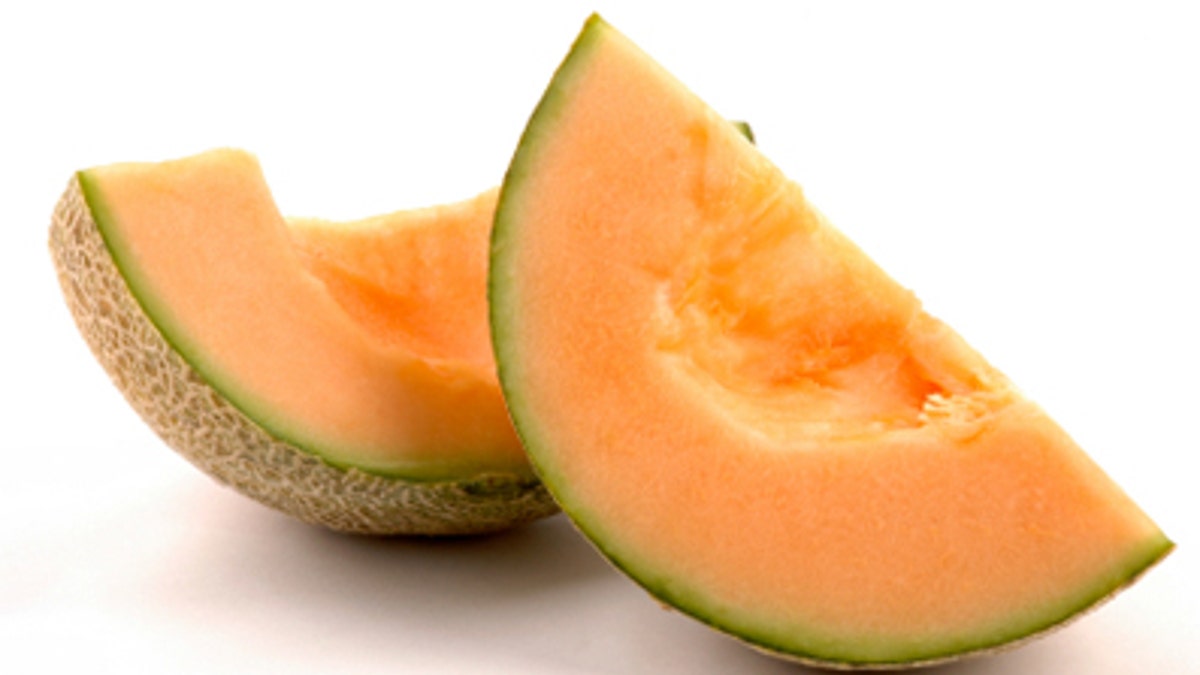
Health officials have issued a warning for cantaloupes from a revered melon-producing area of Colorado amid a bacteria outbreak blamed for four deaths in the state and New Mexico, troubling farmers who depend on sales of the fruit.
The warning from the Centers for Disease Control and Prevention came after 15 cases of a strain of Listeria were reported from four states, including 11 from Colorado, two from Texas, and one each from Nebraska and Oklahoma. Suspected cases were being investigated in other states.
The agency said it was the first Listeria outbreak linked to cantaloupe in the United States.
Rocky Ford cantaloupes are famous throughout the country, drawing travelers to roadside stands. Piles of the coveted melons are featured on postcards. W.C. Fields reportedly said bald guys have "a head shaped like a Rocky Ford cantaloupe," and Lucile Ball had the melons delivered to her dressing room.
"This is really silly. You can get Listeria any place. I eat those melons every day," said Kent Lusk, a fifth-generation cantaloupe farmer from Rocky Ford.
Colorado Agriculture Commissioner John Salazar said it might not be the cantaloupes, but a contaminated truck or other source. He said no recalls have been issued, but several Colorado grocery chains pulled their supplies as a precaution.
Listeriosis is a serious infection usually caused by eating food contaminated with the bacterium Listeria monocytogenes. The disease primarily affects older adults, pregnant women, newborns and adults with weakened immune systems.
Colorado health director Chris Urbina said people who are at high risk included people 60 and older, those with weakened immune systems from transplants and people with chronic diseases.
Symptoms can include fever, muscle aches, diarrhea, headache, stiff neck, confusion and convulsions. Listeriosis can cause miscarriages and stillbirths.
The CDC warning advised people with cantaloupes at home to see if they came from the Rocky Ford region, and if so, not to eat the melons if they're in a vulnerable group. Health authorities asked people throwing out Rocky Ford cantaloupes to put them in a sealed plastic bag before putting them in the trash.
Urbina said the department was expecting more test results this week that might help identify the specific source of the cantaloupe sickening people.
Lusk said this year's growing season was almost over and that he doesn't believe the outbreak will have a lasting impact.
"I think there were just a few bad ones," said Adela Licano, a Chamber of Commerce board member who added that about a dozen roadside stands were still open.
"This is a major industry. We hope there is no permanent impact. We're going to get to the bottom of this," Salazar said.
In New Mexico, the fatal cases included a 93-year-old man from Bernalillo County, a 61-year-old woman from Curry County and a 63-year-old man from Bernalillo County. State Environmental Health Bureau inspectors were collecting cantaloupe samples from grocery stores and distributors across New Mexico for laboratory analysis.
Mark Salley, spokesman for the Colorado Department of Public Health and Environment, said the person who died in Colorado was not being identified.
"We extend our sympathy to the families and friends of those who have died from this infection," said Colorado Health Secretary Dr. Catherine Torres. "At this time, based on the preliminary findings in Colorado, we are cautioning people who are at high risk for Listeria infection to avoid eating cantaloupe."




















